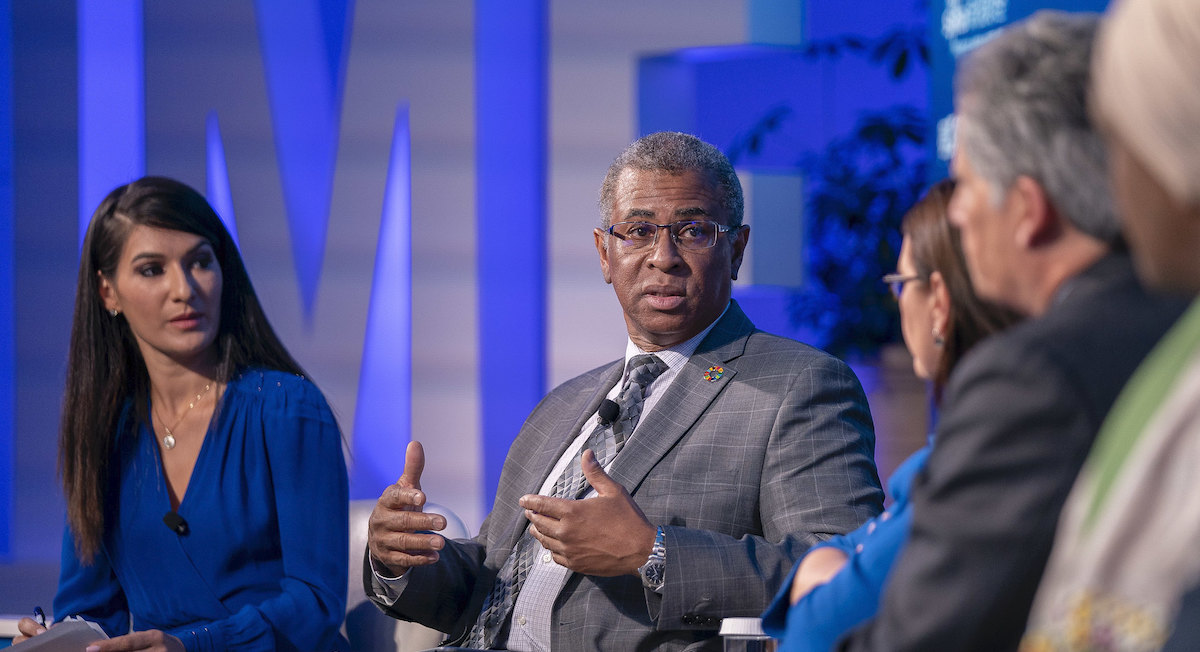The COVID-19 global pandemic has brought inequalities in and decolonization of foreign aid to the front and center. But “the effort to put more money and power over aid into the hands of the communities it is meant to benefit is not new," said a New York Times editorial early in 2021, on “Foreign Aid Is Having a Reckoning.”
This trend will be welcome to developing country leaders. As AidData reports in its new Listening to Leaders 2021: A Report Card for Development Partners in an Era of Contested Cooperation, which analyzes the results of a survey of nearly 7,000 leaders, policymakers in the world’s poorer countries express a consistent desire for more say in the conceiving and implementation of aid and more country ownership.
“Amidst global calls to decolonize aid, leaders give high marks to donors that embrace locally-led development by working closely with in-country stakeholders to target resources and expertise that advance national priorities, and who coordinate with other donors,” said Rodney Knight, Deputy Director of Policy Analysis at AidData and a co-author of the report. “The highest performing donors in the eyes of low- and middle-income country leaders are those that respect the self-determination of countries to set their own priorities and ensure their efforts are in step with those of other actors on the ground. Development partners would do well to heed the insights from leaders in this survey on how best to level the playing field for countries to work together on equal footing for a more peaceful, just, and prosperous world.”
The finding is also consistent with results from the two previous waves of AidData’s Listening to Leaders Survey.
“Decision-makers want development to be more adaptive to local needs and more mindful about planning ahead for long-term sustainability,” said Samantha Custer, Director of AidData’s Policy Analysis Unit and a co-author of the report. “They value locally-led priority-setting, inclusive of a diverse set of government and non-governmental stakeholders iterating on politically feasible and contextually appropriate solutions.”
What leaders want – some specifics
When asked to select their three most important domestic priorities, over half of survey respondents identified education (SDG 4), jobs (SDG 8) and strong institutions (SDG 16) as top issues. This was consistent across respondent gender, occupation, region, and level of experience, and in keeping with findings from AidData’s 2017 survey of leaders.
Meanwhile, donors’ top two priorities (based on an analysis of their aid spending) converged most closely with leaders with regard to investing in peace, justice and strong institutions (SDG 16) and good health and wellbeing (SDG 3), the latter of which was also a top 6 priority for leaders. In 2020, just as in 2017, AidData analysis finds donors may be underinvesting in education (SDG 4) and jobs (SDG 8) relative to the strong emphasis placed on these priorities by leaders.
Donors seemed most out of step with developing country citizens on neglecting climate action (SDG 13), gender equality (SDG 5), eliminating poverty (SDG 1), and hunger (SDG 2). Parliamentarians, non-governmental organizations, the local representatives of development partners, and women were substantially more concerned about gender equality (SDG 5) than other stakeholder groups.
Overall, leaders want development projects that are transparent and generous in the terms, paying close attention to the generosity of the financing offered by development partners. Understandably, leaders do not want undue burdens placed on their countries: respondents preferred grants and low-interest loans, disliked tied aid, and favored large dollar projects. Leaders were also noticeably more interested in infrastructure projects than those focused on civil society, for example.
Notably, leaders gravitated towards projects requiring higher, rather than lower, standards. Respondents were more likely to choose aid projects with regulations attached, specifically to reduce corruption, minimize environmental damage, or protect workers from unfair labor practices, than those projects without. Respondents also preferred projects that required public disclosure of the aid agreement terms over those that did not.
“The enthusiasm for regulations and disclosures does not appear to support the ambivalence argument—that, in practice, regulations are unlikely to be enforced,” said Knight. “Instead, this may lend further credence to the view that reform-minded leaders may sometimes view these external requirements as strengthening their hand to overcome potential domestic resistance and lock-in desirable policy changes. This should be welcome news to development partners, provided that they are thoughtful and consultative in ensuring the regulations they propose are well aligned with what their counterparts hope to achieve at home.”
For more, read the full report, Listening to Leaders 2021: A Report Card for Development Partners in an Era of Contested Cooperation.
For media inquires, contact: Alexander Wooley, AidData Partnerships and Communications Director, awooley@aiddata.org; +1.757.585.9875

